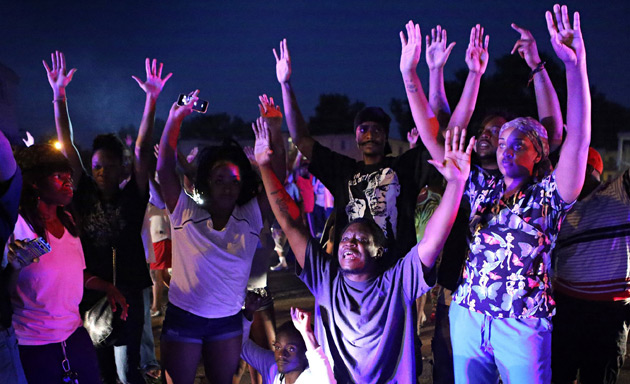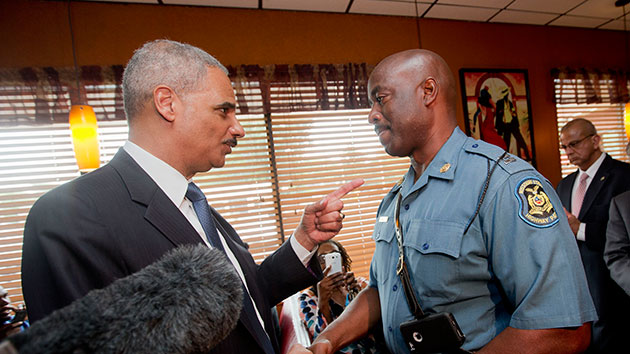
Sen. Claire McCaskill (D-Mo) at the Senate hearing.J. Scott Applewhite/AP
In a Senate Homeland Security Committee hearing Tuesday, Democratic and Republican lawmakers slammed officials from the Department of Defense, Homeland Security, and the Department of Justice for their handling of federal programs that help provide military grade vehicles, equipment, and weapons to local police departments across the country. The hearing was called in response to the events that took place in Ferguson, Missouri, after an unarmed black teenager, Michael Brown, was shot and killed by a white police officer, and peaceful protests were met by a heavily militarized police force. “Aggressive police actions [were] being used under the umbrella of ‘crowd control,'” noted Sen. Claire McCaskill (D-Mo.).
The panel grilled Alan Estevez, a Department of Defense agent dealing with logistics and acquisition of military equipment; Brian Kamoie, a federal grant regulator at the Department of Homeland Security; and Karol Mason, an attorney from the Department of Justice.
Senators questioned why certain military equipment was on the Pentagon’s list of acceptable items for local police departments. Senator Tom Coburn (R-Okla.) declared that police militarization gives him “real heartburn” and wondered “how did we get to the point where we think states needs MRAPS”—that is, mine-resistant ambush protected vehicles, which have been acquired by a large number of small police departments across the country. In Texas, McCaskill noted, police departments have more than 70 MRAPS, while the state National Guard has just six.
Sen. Rand Paul (R-Ky.) questioned what police departments could possibly do with the 1,200 bayonets that have been issued in recent years. The Pentagon’s Alan Estevez replied that he was unsure. Throughout the hearing, members of the panel underscored the point that police officers are often not adequately trained in how (and when) to use the military-grade equipment their departments acquire. The Pentagon doesn’t require police departments to undergo any training before supplying them MRAPS and other military equipment.
Estevez testified that the Pentagon would reevaluate its list of acceptable equipment for police departments. But Brian Kamoie, the Homeland Security official, and the Justice Department’s Karol Mason, both acknowledged that their agencies don’t do much to regulate how police departments use the grant money they dole out to local law enforcement.
McCaskill condemned the Department of Defense and the other agencies for their lack of oversight over the use of military equipment by local police. “None of them know how it’s being utilized,” McCaskill said. She pointed out that a police department in Lake Angelus, Michigan, which employs only one police officer, has received 13 military grade assault weapons since 2011. “I think we need to get to the bottom of that,” McCaskill said.
Watch the hearing here:












